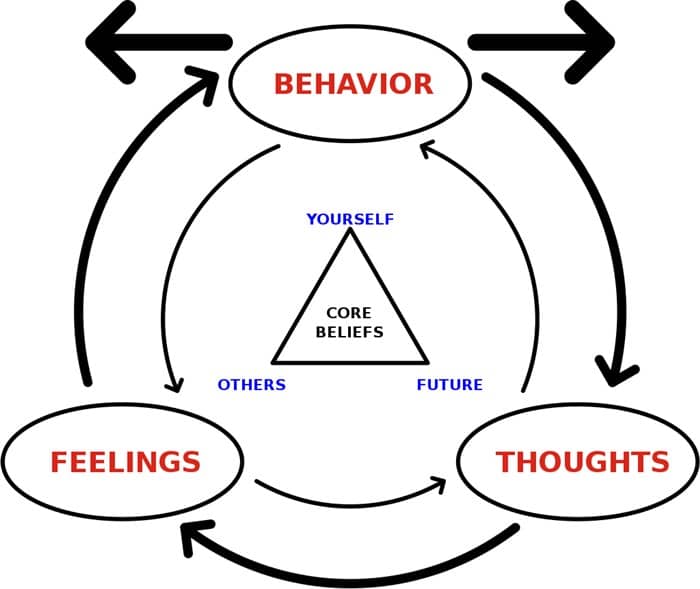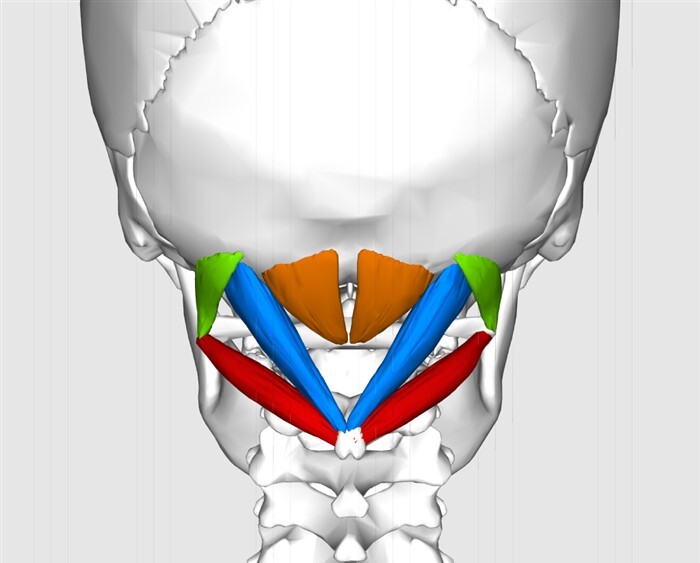Tinnitus is a very common problem; it is extremely annoying and frustrating for people suffering from frequent attacks. A tinnitus attack leads to irritability, lack of sleep, poor concentration, and depression. Since there is no direct tinnitus cure, people suffering from chronic tinnitus should try out the various tinnitus therapy techniques to reduce the effects of tinnitus and get relief.
Is There A Cure For Tinnitus?
Unfortunately, there is no medical cure for tinnitus. The tinnitus therapy techniques given below do give relief but are not permanent cures. Tinnitus therapy techniques help to reduce the intensity of the tinnitus and enable the affected person to lead a comfortable life. Many pharmaceutical companies are working on a medical cure for tinnitus and very soon we will see doctors prescribing medicines.
What Is The Most Effective Treatment For Tinnitus?
Every person’s body function and physiology are unique, a tinnitus therapy suiting one person may not be as effective for another. A particular tinnitus therapy management will work depending on the cause of tinnitus. It is important to understand that tinnitus is a symptom and not a disease. A defect or cause elsewhere in our body causes ringing in the ear and other related symptoms. Read to know the causes of tinnitus.
Tips For Reducing Tinnitus
Before we go into the various recognized tinnitus therapy techniques which require you to consult a qualified person, there are a few actionable tips on how to relieve tinnitus, that the patient can take on their own.
Avoid Exposure To Extremely Loud Noise
If you are in a situation or location where loud noise is present, use noise reducing earplugs. Do not avoid noisy situations totally as it may increase sensitivity to sound and aggravate your tinnitus.
Do Not Isolate Yourself Or Live In Total Silence
As mentioned above, avoiding noisy situations decreases our tolerance to sound and reduces our ability to face noisy conditions.
Reduce Salt Consumption
Salt thickens the blood which makes it harder to circulate causing an increase in blood pressure. Reducing salt intake helps in reducing tinnitus.
Keep A Check On Your Blood Pressure
As mentioned above, tinnitus is directly related to blood pressure. If you are suffering from high blood pressure, take appropriate treatment and keep it under control.
Avoid Consumption Of Caffeine Nicotine And Alcohol
Caffeine and nicotine are stimulants that increase the levels of tinnitus in some people. Avoid alcohol as it can trigger tinnitus. Regular consumption of alcohol also increases the chances of hearing loss.
Maintain An Active Lifestyle And Exercise Regularly
Physical activity increases the heart pumping rate which enables the heart to pump more blood. The small blood vessels or capillaries leading to our ears and other organs get more blood and nourishment. Yoga is a tried and tested method to reduce tinnitus.
Does Fatigue Cause Ear Ringing?
Many people have observed an increase in tinnitus when they are tired. Fatigue is a sign of undernourishment or not consuming a balanced diet. Consult a dietician to know if your daily diet contains the necessary vitamins and minerals.
Stress Management
Stress is very common due to work pressures and lifestyle changes. Our body releases certain chemicals in response to stress, continuous secretion of these chemicals is harmful. Read about the effects of stress on our hearing.
Effective Tinnitus Therapy Methods
The following tinnitus management therapies are very effective.
1.Tinnitus Retraining Therapy
Tinnitus Retraining Therapy or TRT tinnitus treatment is a proven process of learning to cope with your tinnitus. It’s not a cure, but it helps you to cope with the noise in your head.
How Does Tinnitus Retraining Therapy Work?
The goal of Tinnitus Retraining Therapy is to retrain or condition the brain so that it doesn’t react as strongly to the ringing in your ears. Tinnitus Retraining Therapy is a sound therapy that helps people with tinnitus to relearn and not to pay attention to the ringing in the ears.
The therapy is based on the idea that after some time, our brain will get used to or conditioned to the new sound and stop paying attention to it. This is why TRT is a treatment for ringing sounds in the ear and is helpful for people suffering from tinnitus.
The above tinnitus therapy is generally done under supervision and requires multiple sessions.
2.Cognitive Behavioral Therapy Or CBT For Tinnitus
Cognitive Behavioral Therapy consists of two aspects of human functions.
- Definition of cognitive (As per Merriam-Webster Dictionary)
Of, relating to, being, or involving conscious intellectual activity (such as thinking, reasoning, or remembering) - Definition of behavioral (As per Merriam-Webster Dictionary)
Relating to or concerned with the social, psychological, and emotional factors.
Research on CBT for tinnitus shows that it’s not the tinnitus or the loudness but your perception or your response to tinnitus that decides how bearable or tolerable the sound is.

With the help of cognitive behavioral therapy, the therapist changes the thought processes and perception. The therapist identifies the negative and detrimental thoughts which increase anxiety and depression. And replaces them with positive and more realistic thoughts. That helps us to face tinnitus and handle the situation better.
Sound Therapy For Tinnitus
Though tinnitus is an internal sound, its effect can be countered by external sound devices. The following sound therapy methods are effective in reducing tinnitus.
3.Hearing Aids For Tinnitus Masking
In 75% of the cases, people suffering from tinnitus also have some hearing loss. Hearing aids with a masking feature is ideal in such situations. Besides providing amplification to compensate for the hearing loss, these hearing aids emit white noise.
This noise is adjustable and will match and mask the tinnitus sound. At the same time, the amplification of speech frequencies helps to lower the ringing or reduce tinnitus. Find out how hearing aids help tinnitus.
4.Tinnitus Masking Devices Or Tinnitus Maskers
A tinnitus masking device is identical to a hearing aid but does not amplify external sound. It only emits white noise or a tone to mask the tinnitus noise. This device is generally used by people having tinnitus but no hearing loss.
5.Notch Therapy For Reducing Tinnitus
Notch Therapy is a recent development in tinnitus therapy management. The earlier method was to mask the tinnitus noise. The new method does not mask the tinnitus sound but pushes it into the background.. For the Notch Therapy to work, the therapist identifies the center frequency of the patient’s tinnitus noise. The patient hears various frequency tones and is asked to identify the one which is closest to their tinnitus tone.
Once the center frequency is identified, the hearing device is programmed accordingly. Music, speech, or white noise is presented through the hearing device with the center frequency “notched out” or with reduced amplification.
The reasoning is that, instead of drowning out or masking the person’s tinnitus sound, the tinnitus sound is pushed into the background. This action of notching out reduces the activity of the neurons thereby reducing tinnitus.
6.Tinnitus Apps
Tinnitus apps are very convenient and a convenient tinnitus home treatment option. Free and paid apps are available for download, all you need is a smartphone. Try out the various apps and select the one which gives you maximum relief. You can save more than one app on your smartphone and use them depending on the type and intensity of the tinnitus sound.
7.Physical Therapy For Somatic Tinnitus Treatment
Tinnitus physical therapy is essentially done under the supervision of the chiropractor.
Cervical Movements And Muscle Contractions
This method is very effective in reducing tinnitus in the case of cervical tinnitus. Cervical movements and muscle contractions of the neck give relief. The movement should normalize cervical spine mobility. Stretching the tense muscles of the neck also reduce tinnitus.
Patients notice a reduction in the sound and pitch by the movement of their jaw, neck, and eyes. Applying gentle pressure with fingertips on the temples, and behind the ear is also an effective therapy.
8.TMS Therapy For Tinnitus
TMS tinnitus therapy or Transcranial Magnetic Stimulation is one of the experimental tinnitus treatments. TMS is approved by the FDA for depression but not as a tinnitus therapy.
Strong electromagnetic stimulation reduces neural activity. Since excessive neural activity is one of the causes of tinnitus, some patients may benefit from this therapy.
9.Latest Treatment For Tinnitus

Vagus Nerve Stimulation therapy has received approval from the FDA for the treatment of epilepsy, depression, and cluster headaches.
Detailed information on the method and the results obtained by using Neuromodulation by Vagus Nerve Stimulation are mentioned in this article in the Plos.org journal.
10.Medications For Tinnitus
Since medications for tinnitus are unavailable, doctors often recommend symptomatic treatment. Tinnitus is a symptom and not a disease, doctors look for the disorder that triggers tinnitus and treat it. Anxiety, depression, and stress are common triggers.
As per the American Tinnitus Association, the following antianxiety and antidepressant drugs are commonly prescribed as medications for tinnitus.
Common antidepressant drugs used as a medication for tinnitus:
- Clomipramine (Anafranil)
- Desipramine (Norpramin)
- Imipramine (Tofranil)
- Nortriptyline (Pamelor)
- Protriptyline (Vivactil)
Common antianxiety drugs used as a medication for tinnitus:
- Alprazolam (Xanax)
- Clonazepam (Klonopin)
- Diazepam (Valium)
- Lorazepam (Ativan)
Note: do not take any drug unless prescribed by your doctor.
11.Alternative Therapies For Tinnitus
Many people use complementary and alternate therapies to get relief. Though none of these therapies have received approval from the drug controller or are medically proven, yet people claim to have benefitted from them.
In case, the therapy involves consuming any supplement or herbs, patients should check with their doctor for any contraindications or reactions with the drugs they are taking.
- Acupuncture
- Yoga
- Ginkgo Biloba
- Nutritional Supplements (Vitamin B12, Melatonin, Zinc)
- Homeopathy
- Acupuncture
- Hypnotherapy
- Biofeedback and Neurofeedback
Tinnitus is a frustrating experience and has a major impact on one’s life. We have not found a cure so far because it’s not simple and is caused by multiple factors. Hopefully, one of the tinnitus therapy techniques described above may bring some relief till we have a cure.
References:
https://www.ata.org/
https://www.intechopen.com/chapters/65321
https://pubmed.ncbi.nlm.nih.gov/17956795/
